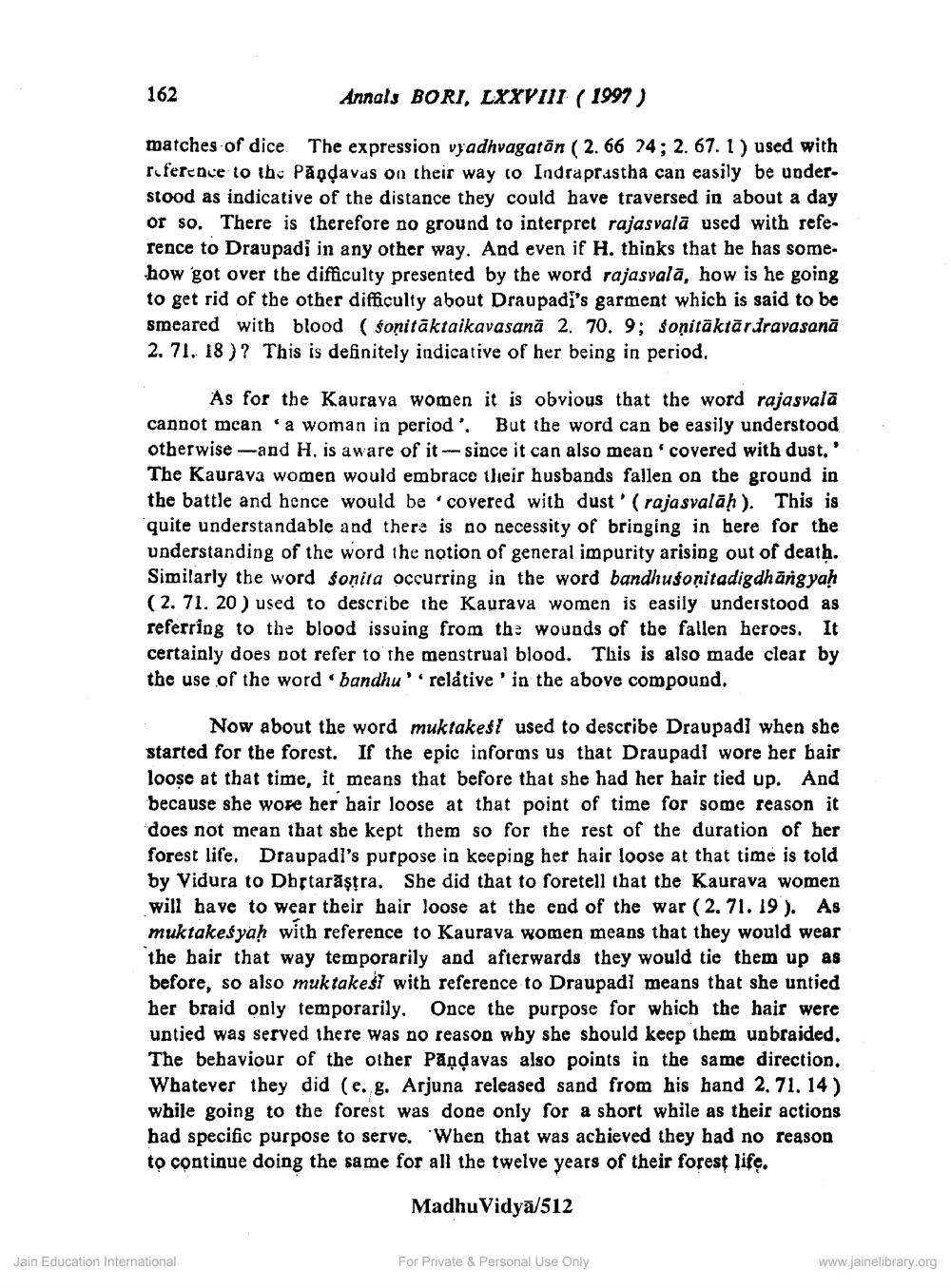________________
162
Annals BORI, LXXVIII (1997)
matches of dice. The expression vyadhvagatan (2. 66 24; 2. 67. 1) used with rifercace to the Paodavas on their way to Indraprastha can easily be understood as indicative of the distance they could have traversed in about a day or so. There is therefore no ground to interpret rajasvala used with reference to Draupadi in any other way. And even if H. thinks that he has some. how got over the difficulty presented by the word rajasvalā, how is he going to get rid of the other difficulty about Draupadi's garment which is said to be smeared with blood ( soņitāktaikavasana 2. 70. 9; soņitāktārdravasanā 2. 71. 18 )? This is definitely indicative of her being in period,
As for the Kaurava women it is obvious that the word rajasvala cannot mean a woman in period'. But the word can be easily understood otherwise--and H. is aware of it - since it can also mean covered with dust.' The Kaurava women would embrace their husbands fallen on the ground in the battle and hence would be covered with dust' (rajasvalāh). This is quite understandable and there is no necessity of bringing in here for the understanding of the word ihe notion of general impurity arising out of death. Similarly the word sonita occurring in the word bandhusoņitadigdhāngyah (2. 71. 20 ) used to describe the Kaurava women is easily understood as referring to the blood issuing from the wounds of the fallen heroes. It certainly does not refer to the menstrual blood. This is also made clear by the use of the word .bandhu'relative' in the above compound.
Now about the word muktakesl used to describe Draupadi when she started for the forest. If the epic informs us that Draupadi wore her bair loose at that time, it means that before that she had her hair tied up. And because she wore her hair loose at that point of time for some reason it does not mean that she kept them so for the rest of the duration of her forest life. Draupadi's purpose in keeping her hair loose at that time is told by Vidura to Dhrtarăştra. She did that to foretell that the Kaurava women will have to wear their hair loose at the end of the war (2.71.19 ). As muktakesyah with reference to Kaurava women means that they would wear the hair that way temporarily and afterwards they would tie them up as before, so also muktakest with reference to Draupadi means that she untied her braid only temporarily. Once the purpose for which the hair were untied was served there was no reason why she should keep them upbraided. The behaviour of the other Pandavas also points in the same direction. Whatever they did (e. g. Arjuna released sand from his hand 2.71. 14) while going to the forest was done only for a short while as their actions had specific purpose to serve. When that was achieved they had no reason to continue doing the same for all the twelve years of their forest life.
Madhu Vidya/512
Jain Education International
For Private & Personal Use Only
www.jainelibrary.org




